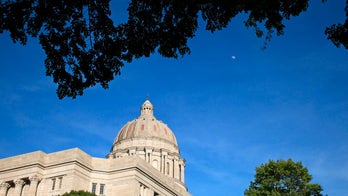Bailout recipient Bank of America is catching flak for sponsoring a five-day fan festival outside the Super Bowl stadium last week in Florida.
Taxpayer advocacy groups say the company, which has received $45 billion so far in federal rescue funds, should have known better than to carry through with the sponsorship, which they say sends an unappreciative message to taxpayers.
"When you take money from the federal government, you become political. And every dollar you have is in effect taxpayer money," said Grover Norquist, president of Americans for Tax Reform and bailout foe. "This is what happens when you give money to people for free ... they're just spitting on the taxpayers."
Bank of America spokesman Joe Goode said the company was obligated by a contract signed over the summer to sponsor the event, called the NFL Experience. He also said taxpayer dollars were not used, since the contract was signed before Bank of America received bailout money.
According to a description from the Super Bowl host committee, the NFL Experience featured more than 50 games and attractions spanning nearly 850,000 square feet. Kids' football clinics, autograph sessions and a football card show were all part of the package.
Tickets ranging from $12.50 to $18.50 were sold for the event, but the NFL plans to donate the proceeds to the two NFL Youth Education Towns of Tampa Bay. Ticket sellers also offered a 20 percent discount to Bank of America customers.
Goode said such sponsorships help Bank of America generate revenue in the long-term and in turn will help the company pay back the federal government. He said last week's event alone generated 14,000 checking and credit card applications.
"For every dollar we spend in these business relationships, we generate more than $10 in revenue for our shareholders," he said.
But Tom Schatz, president of Citizens Against Government Waste, said despite the contract, Bank of America knew it was having financial problems for months and should have responsibly backed out of the deal.
"If they weren't taking taxpayer money, they could do what they wanted. And this is a different situation," he said.
"There's just common-sense judgment in terms of what looks good ... but this was not helpful," Schatz said. "It just really exacerbates the lack of transparency about where the taxpayer money is going and what it's doing."
Bank of America last month got another $20 billion from the government to help it absorb Merrill Lynch's losses, after earlier receiving $25 billion in federal funds.
As the federal government continues to dole out the remaining half of its $700 billion financial bailout package, recipients will no doubt face mounting scrutiny about how they spend their money.
Chrysler ran into similar problems in December, when it ran a full-page newspaper ad to thank Americans for "investing" in the company through the government's $17.4 billion auto industry bailout pledge. Critics said the costly ads in major dailies were an insult to taxpayers.
Norquist said he hopes the public scrutiny of bailout recipients' money management will eventually pressure them to cut themselves off from the federal government.
"This will remind businessmen why you don't get in this game," he said.
FOXNews.com's Judson Berger contributed to this report.




